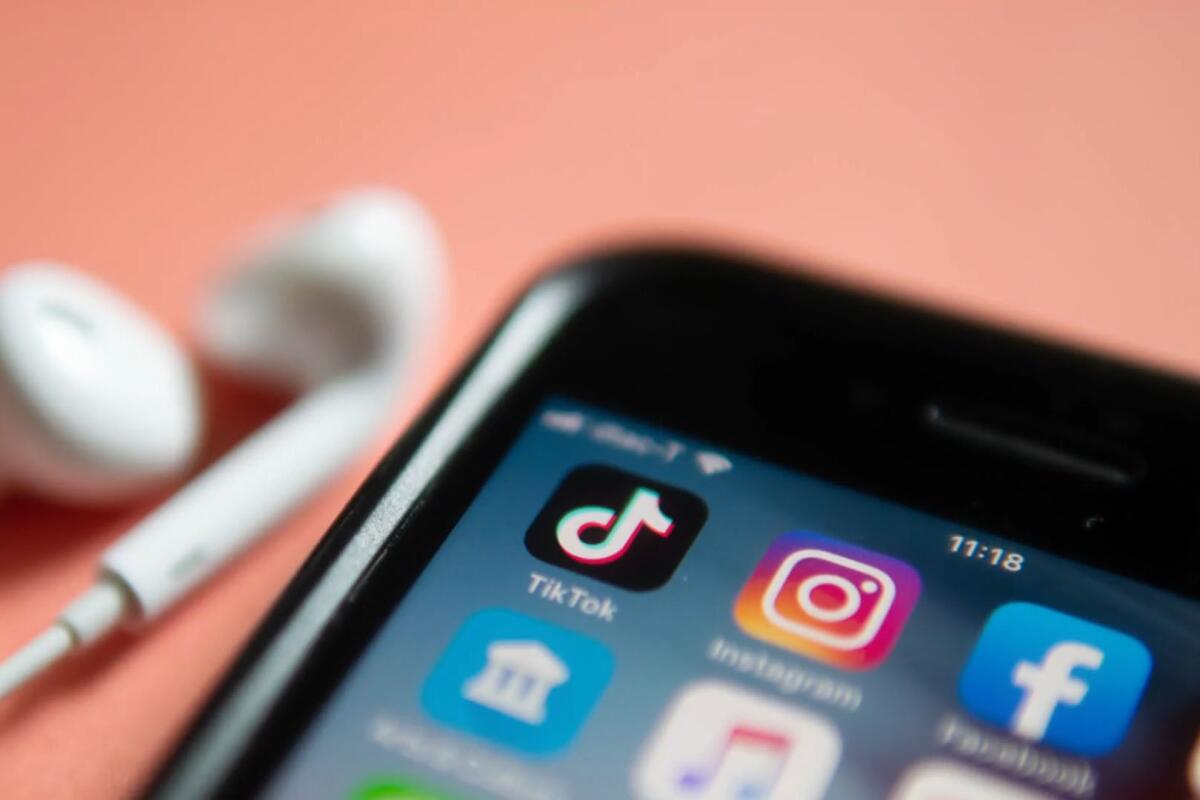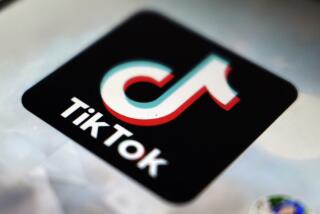Judge: U.S. must delay TikTok ban or defend it Friday

- Share via
The Trump administration was ordered to postpone a U.S. ban on TikTok set for Sunday or respond by Friday to a request by the app’s Chinese owner for a court order temporarily blocking the ban.
The owner, ByteDance Ltd., is seeking a preliminary injunction on the ban even as it continues to pursue approvals from the administration for a sale of the video-sharing app’s U.S. operations to Oracle Corp. and Walmart Inc. forced by President Trump. It has asked the court to consider its request ahead of the prohibition, which takes effect just before midnight on Sunday.
After a hearing Thursday, U.S. District Judge Carl Nichols gave the U.S. until 2:30 p.m. Eastern time Friday to agree to delay its deadline or file court papers opposing ByteDance’s bid for the injunction. Without a delay of the ban, the judge would hold a hearing on the injunction request Sunday morning.
The U.S. argued against an expedited schedule in the case, saying ByteDance had filed a separate suit more than a month ago and was late in requesting the injunction in this one.
“TikTok is allowed to continue operating with respect to existing users but cannot add users, and the reason for that is that there are significant national security risks,” Assistant U.S. Atty. Daniel Schwei told the judge.
Both TikTok and WeChat, which is owned by China’s Tencent Holdings Ltd., have been labeled national security threats by the Trump administration, which is seeking to stop their use in the U.S. — or, in TikTok’s case, force a sale to U.S. companies — on the grounds they could allow China’s government to gain access to personal data from millions of Americans. The TikTok ban, proclaimed in an Aug. 6 executive order by the president, is part of a wider effort by the administration to take a hard line against Beijing, betting that a tough approach will help the president win reelection.
The ban on TikTok, effective at 11:59 p.m. on Sept. 27, would mean removal from the app stores run by Apple Inc. and Google, the most widely used marketplaces for downloadable apps, so people who don’t yet have the app wouldn’t be able to get it. Those who already have it wouldn’t have access to updates needed to ensure its safe and smooth operation. Over time, it would become useless.
John Hall, a lawyer for TikTok, told the judge that the company sought relief as soon as it was allowed to under the law and that the government would have argued it was premature if filed earlier.
Hall said the looming ban was affecting the company’s reputation with users, who are considering moving to less attractive platforms. In the social media industry, Hall said, “users retained is absolutely the lifeblood of their business.” He argued that the ban would increase risks to existing users by preventing them from getting regular security updates.
“The urgency of this is created by the Sunday night ban,” Hall said. “That part of it makes absolutely no sense to us.”
The case is TikTok Inc. v. Trump, 20-cv-2658, U.S. District Court, District of Columbia (Washington).






